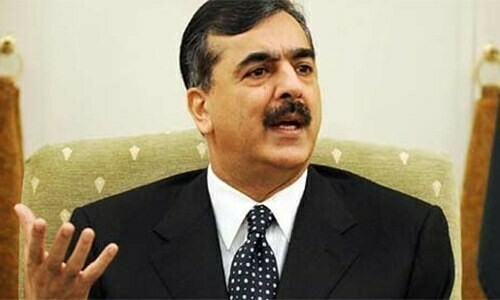THERE have been demands from time to time that Prime Minister Imran Khan should ‘mobilise’ the people to implement his socioeconomic agenda. The idea is sound, except that a people can be mobilised basically in a totalitarian society, while democracies have other, better tools. A dictatorship is not necessarily totalitarian. Countless dictatorships in the post-war era in the Middle East, Africa and Latin America chose the conventional way of development because they had no means with which to mobilise the people in the absence of a network of highly indoctrinated and motivated cadres.
Even well-meaning authoritarian regimes, like those of Gamal Abdel Nasser and Anwar Sadat in Egypt and of Ayub Khan in Pakistan, were hamstrung by lack of a grass-roots party powerful enough to breathe down the bureaucrats’ necks and brush aside the red tape.
Some communist states unleashed the people’s energy with varying degrees of success, though many regimes, as those of Eastern Europe, merely copied Moscow. In China’s case, however, ignoring the chaos of the Cultural Revolution, the Communist Party did this twice, first under Mao Zedong during the revolution’s formative decades and later under Deng Xiaoping, who launched what is called China’s second revolution. In Deng’s case, there was some profit motive. Land was made ‘family responsibility’. In industry, the state introduced radical reforms, and the private sector moved in later in a big way.
There is much non-state energy which can be tapped only if it is tamed.
In Pakistan, since the PTI has no cadres of the kind seen only in mono-party, ideological states, mobilising the people in the real sense of the term is alien to our political system. Yet, there is a vast reservoir of untapped, non-state energy which can be tapped only if it is tamed, but taming it is a job no civilian or military government has attempted the right way. Instead, regretfully, the proud and often wounded owners of this boundless energy have been wrongly approached, sometimes out of fear, sometimes out of necessity and sometimes kowtowed to.
Let’s note that religious extremism does not necessarily translate into political philosophy approving of violence. In many cases, especially in Pakistan’s burgeoning middle class, religious extremism means conformism to tradition and is restricted to personal conservatism in familial mores. Yet, irrespective of who they vote for, such people donate generously to charitable organisations with a religious orientation.
Throughout Pakistan, there is no dearth of well-funded charities doing commendable social service. Not counting the Edhi Foundation and some other organisations whose ambulances are ubiquitous, there are countless, religiously oriented NGOs whose wide variety of activity includes paying for the marriage of girls from low-income groups and providing for medical help and monthly quotas of ‘ration’ to needy families. Then there are madressahs which do not have any political affiliations.
The recent talk about changing their curriculum hasn’t gone well with them. Ignoring Maulana Fazlur Rahman’s fury, most madressah managements have reacted negatively to the prime minister’s curriculum plan because they jealously guard their course of study which to them is a sacred legacy developed over centuries of interaction between South Asia and the Arab world. Many old hands feel hurt that their positive work is overlooked and, instead, they are considered accomplices in the Taliban’s war on the state.
The best choice is to co-opt them — instead of annoying and alienating them — and utilise their financial and manpower assets for building the country. Their utility in the beginning will, of course, be marginal. For instance, their cooperation could be sought in building (with their money and labour) some aspects of urban infrastructure, like pedestrian bridges and road repairs, besides seeking their help in neighbourhood policing, controlling noise pollution, keeping their localities clean, renovating and maintaining abandoned parks, tipping off the government on illegal construction, providing government schools with furniture, water and toiletries where none exist and helping with traffic discipline.
They have money and volunteers, and they can solve long-neglected local problems to which federal, provincial and local governments haven’t paid attention.
The long-term advantages of such an enterprise will be enormous because this will lay the foundation of a meaningful cooperation between the state and the madressahs — entities considered incompatible. Such a fruitful beginning, even if modest in the beginning, could induce other organisations with larger financial, manpower and intellectual assets — groups like the Tableeghi Jamaat, whose discipline and dedication to their cause are noteworthy — to put their shoulder to the wheel. More significantly, this will remove their misunderstandings about the state’s intentions, because ‘development’ to them conjures up images they do not feel happy about.
The writer is Dawn’s Readers’ Editor and author.
Published in Dawn, October 3rd , 2018











































